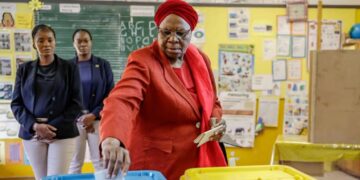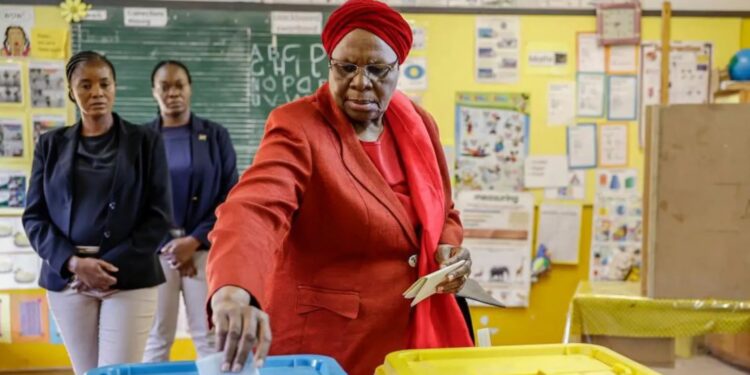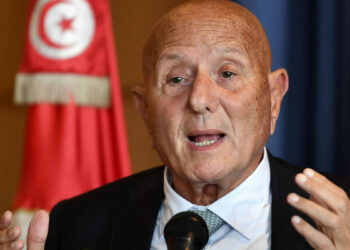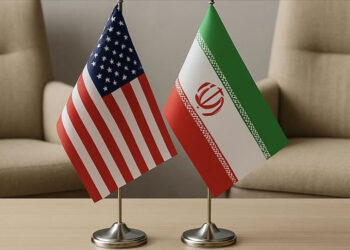By John Ikani
Namibians are casting their votes in an election many consider the tightest contest since the country broke free from apartheid South Africa 34 years ago.
Netumbo Nandi-Ndaitwah, representing the long-ruling Swapo party, is vying to become Namibia’s first female president. She hopes to succeed Hage Geingob, who passed away in February after serving as president for nine years.
Swapo’s decades-long dominance is now at risk, with rising frustration over unemployment, inequality, poverty, and corruption allegations eroding public confidence in the party.
Nandi-Ndaitwah’s strongest rival is Panduleni Itula of the Independent Patriots for Change (IPC), who is among 14 candidates competing for the presidency.
Reports from polling centers show large turnouts, with voters queuing early at schools and other sites. However, some stations have reported delays due to ballot shortages.
Polling stations opened at 07:00 local time (05:00 GMT) and will remain open until 21:00.
Swapo has held uninterrupted power since Namibia’s independence in 1990. For a candidate to avoid a runoff, they must secure more than 50% of the vote. Otherwise, the top two candidates will face off in a second round.
As voting began, Nandi-Ndaitwah cast her ballot in Windhoek, urging citizens to make their voices heard, saying it would “have an impact for the next five years in your life.”
Despite decades of government service, Nandi-Ndaitwah faces significant challenges, including a deeply rooted male-dominated political culture.
Itula, her main opponent and a former dentist-turned-lawyer, captured 29% of the vote in 2019, coming second to Geingob, who won with 56%. He described election day as vital for Namibia’s democracy after casting his vote in the capital.
Interim President Nangolo Mbumba has been leading the country since Geingob’s passing earlier this year. Mbumba is not running in the current election.
Experts say young voters, who make up more than half of the electorate, could play a decisive role in shaping the results.
Voters are also electing members of parliament, alongside the presidential vote.
Namibia, a sparsely populated country with three million residents, is widely recognized for its peace and stability. About half of its population is eligible to vote.

































